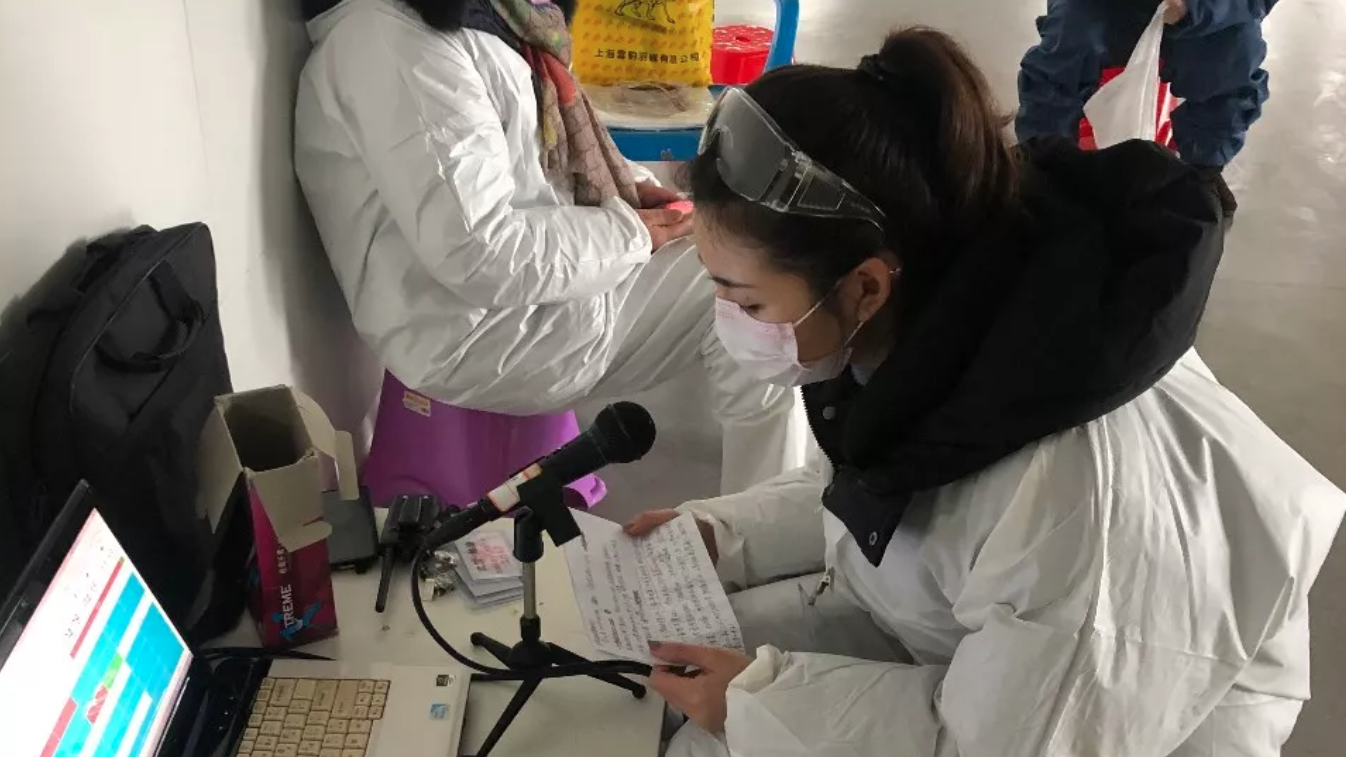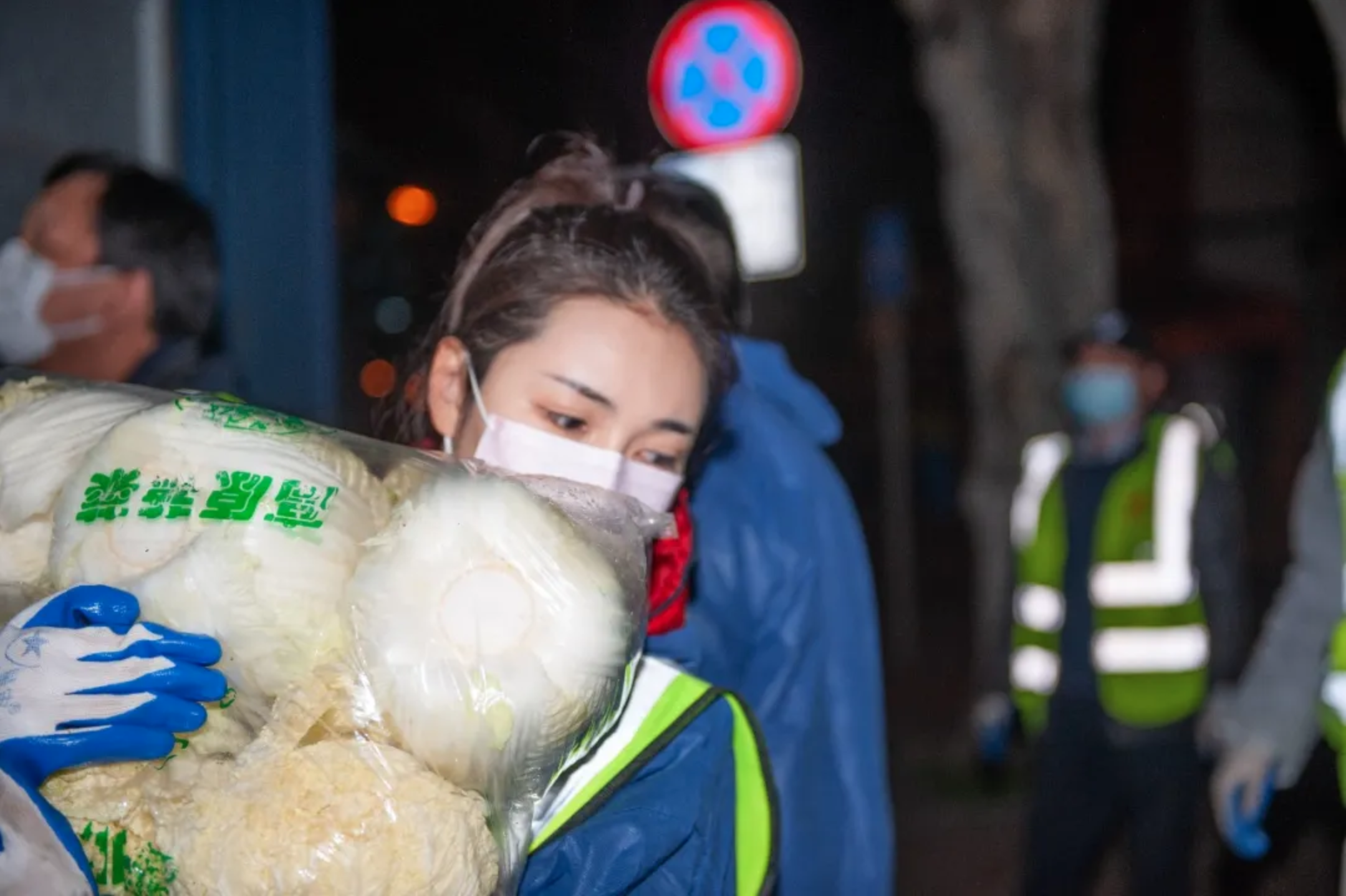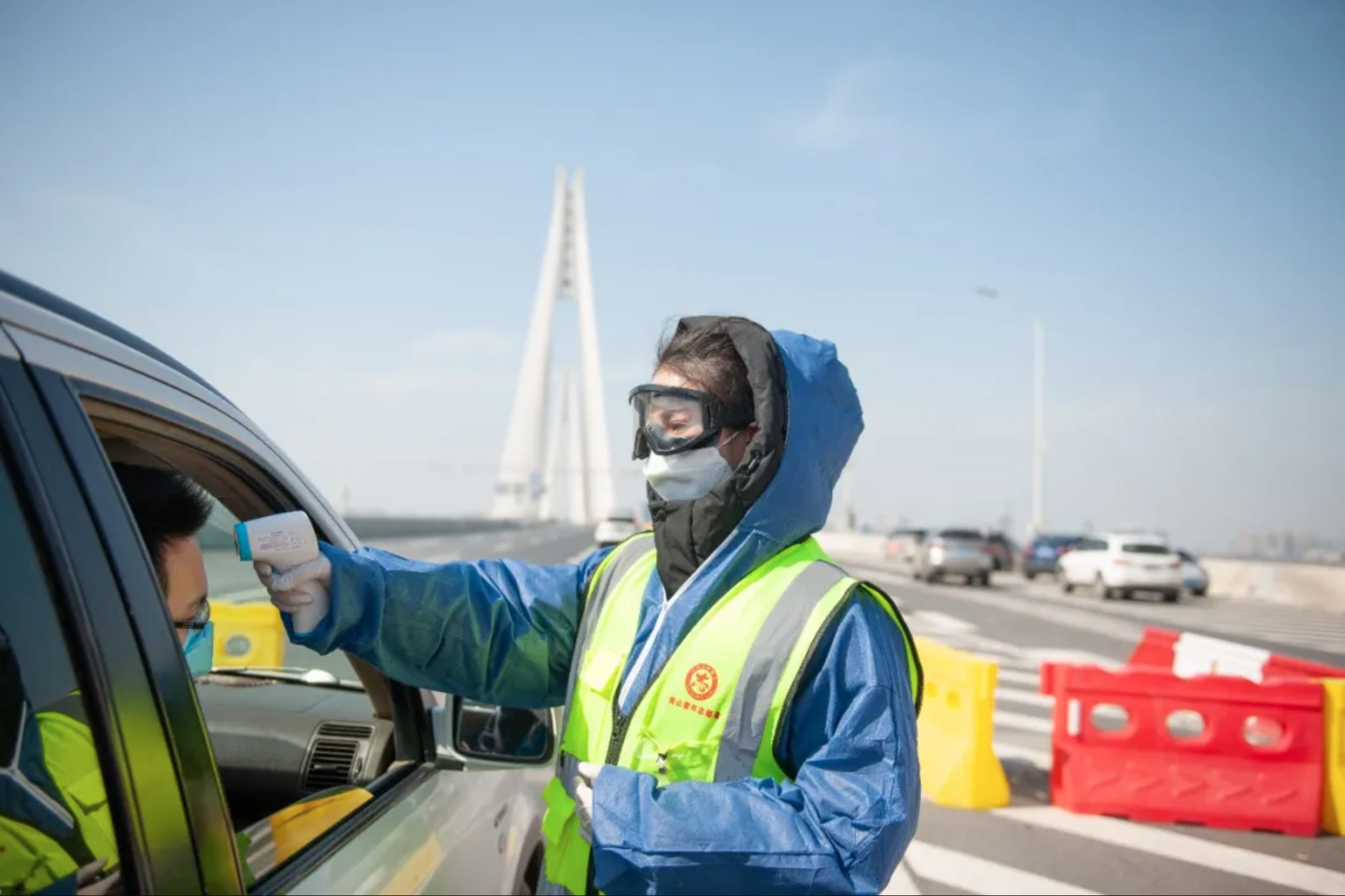
Hua Yuchen broadcasts a radio program in the corridor of a makeshift hospital for COVID-19 patients in Wuhan. /CMG
Hua Yuchen broadcasts a radio program in the corridor of a makeshift hospital for COVID-19 patients in Wuhan. /CMG
Every morning from 8:00 a.m., patients at the makeshift hospital in Wuhan's Qingshan District hear Hua Yuchen's voice.
The music teacher in her 20s has been working as a volunteer radio host at the hospital for COVID-19 patients for a week. Speaking into a microphone at a tiny desk she has set up in the corridor outside a ward, Hua broadcasts a program that includes the weather, news and a reading of feel-good prose to those on the other side of the wall.
After the COVID-19 outbreak in her home city, Hua saw advertisements online seeking volunteers to help with epidemic prevention and control work, so she applied.
Hua's first job as a volunteer was ferrying medical staff to work in her own car. All she had for protection at the time was a face mask.
"They (the medics) were worried that I was scared to ride with them. As soon as they got in the car, they leaned back against the door to keep distance," Hua said. She recalled that an elderly woman once handed her a mask and a small bottle of disinfectant alcohol. "It made me sad. They were going to the front line," she said.
As more transportation arrangements for medical workers became available, Hua took up other voluntary jobs. As soon as a new job was posted online, it is grabbed by someone immediately, said Hua, who offered a hand here and there. Among other roles, she volunteered by temperature checking on a bridge and moving boxes of milk and other supplies.

Hua volunteers for a variety of tasks as part of epidemic relief work in Wuhan. /CMG
Hua volunteers for a variety of tasks as part of epidemic relief work in Wuhan. /CMG
The young woman did all of this without the knowledge of her parents, who were growing suspicious at the irregular hours their daughter was supposedly "on duty at work" and her changed behavior.
"I lied to my parents at first and said I was going to work. Then my mom noticed that I always took a shower as soon as I got home, and then stayed in my room with the door shut," said Hua, who did so to protect her family, and said she felt conflicted coming home everyday after volunteering.
"I hate to think that I helped others outside only to bring danger back home and put my parents at risk," she said.
In order to make sure her family took more precautions, Hua eventually told them the truth.
"My mother was in complete shock when I told them. I still remember the look on her face," she said.
"The first thing my father said when he knew I worked on the bridge was, 'Let me go instead,'" she continued. "I told him I'm younger and healthier. It's more dangerous for my father at his age."

Hua checks the temperatures of drivers on a bridge in Wuhan. /CMG
Hua checks the temperatures of drivers on a bridge in Wuhan. /CMG
In February, the Wuhan authorities began converting gymnasiums and exhibition centers into temporary hospitals to accommodate the swelling number of new patients infected by the COVID-19. Hua got a phone call.
Education officials in her district were looking for a volunteer radio announcer at one of the makeshift hospitals. However, the thought of working there with infected patients was scary enough to put many people off the job.
Hua took the job without thinking twice. After a trial run, she started working at the hospital on February 14. But this time, she couldn't bring herself to tell her parents.
Hua said her favorite part of the job was reading out a letter to recovered patients, who are about to be discharged from the hospital.
"Saying goodbye is hard, but we are excited about this one. Thank you for your cooperation in our fight against the epidemic. We wish you and your family health and happiness…" Hua read on, a feeling of joy and hope growing in her voice.
"When I get to the end of it, I feel so happy knowing that more people are going to walk out of here," she said.